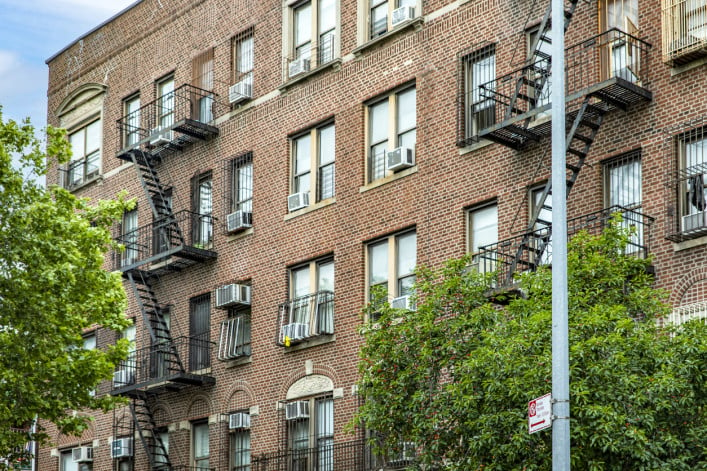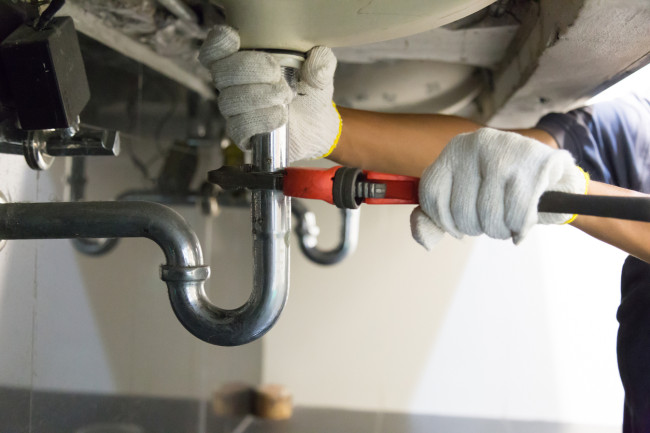What is a rent-impairing violation for a NYC apartment?
- Rent-impairing violations are conditions that pose a ‘serious threat to the life, health or safety of occupants’
- If your landlord doesn’t fix a rent-impairing violation within six months, they are barred from taking rent from you

A rent-impairing violation could be a broken heating system or a rat infestation.
iStock
Rent-impairing violations are conditions in your apartment that are so dangerous that your landlord will be barred from collecting rent from you if they fail to fix them.
Under New York’s Multiple Dwelling law, a rent-impairing violation is a problem with your apartment that constitutes a “serious threat to the life, health or safety of occupants.” A structural defect in your building, broken fire escape, fire hazard, or lack of heat are all examples of rent-impairing violations, according to the Department of Housing Preservation and Development.
If your landlord fails to fix a rent-impairing violation for more than six months, they are barred from collecting rent under the Multiple Dwelling Law. (Landlords who need approval from the HPD before making repairs have a different timeline under the law.)
Read on for an overview of how to recognize these problems in your building, and how to get your landlord to make repairs.
What is an example of a rent-impairing violation?
Some rent-impairing violations are obvious, such as a leaky roof or a rat infestation. For example, if your landlord won’t turn on the heat or refuses to fix your building’s heating system, that would constitute a rent-impairing violation under the Multiple Dwelling law.
But it might be harder to spot other issues, such as structural defects or busted fire escapes, if you don’t know what to look for. You can check out a list of rent-impairing violations, and search your address in HPD’s online building information service to see what other tenants have complained about.
As of last year, there were around 48,000 rent impairing violations issued in the past five years and remained unfixed for more than six months, City Limits reported.
How to address dangerous conditions
Your first step for any problem with your apartment should be to contact your landlord. But if that doesn’t get you resolution, you can call 311 or go online to report your problem to the city. (FYI: It’s a good idea to get other tenants in the building to complain as well.)
Once you make a complaint, a city inspector should visit your building to examine the problem, and then can issue a violation and fines. If that doesn’t get your landlord’s attention, you can also initiate a HP action against your landlord to force them to make repairs, or work with your fellow tenants to demand these fixes. (Rent stabilized tenants can request a rent abatement by filing a reduction of services complaint with the Division of Housing and Community Renewal.)
If these methods fail, you may want to seek out legal help to withhold rent, though doing so will result in your landlord suing you for back rent. The threat of being sued in housing court often scares tenants off from withholding rent, said Jennifer Rozen, managing attorney at Rozen Law Group.
“We see rent-impairing violations fairly often, but a large number of the tenants I encounter refuse to withhold rent because they don't want to end up in court,” Rozen said.
If your building has a rent-impairing violation that’s been open for more than six months, it’s possible to withhold rent, and eventually, win the right to keep that money by arguing that the violation prohibited your landlord from collecting rent.
That method is called the rent-impairing violation defense, but it’s not commonly used by tenants. To use this defense, tenants have to deposit the money their landlord claims they owe to housing court, said Elizabeth Reardon, a senior staff attorney at Brooklyn Legal Services. That can make the defense prohibitively expensive.
“It’s really the only defense that exists that you have to put money down in order to raise it,” said Reardon, who is currently representing a handful of Brooklyn tenants using rent-impairing violations as an eviction defense.






























